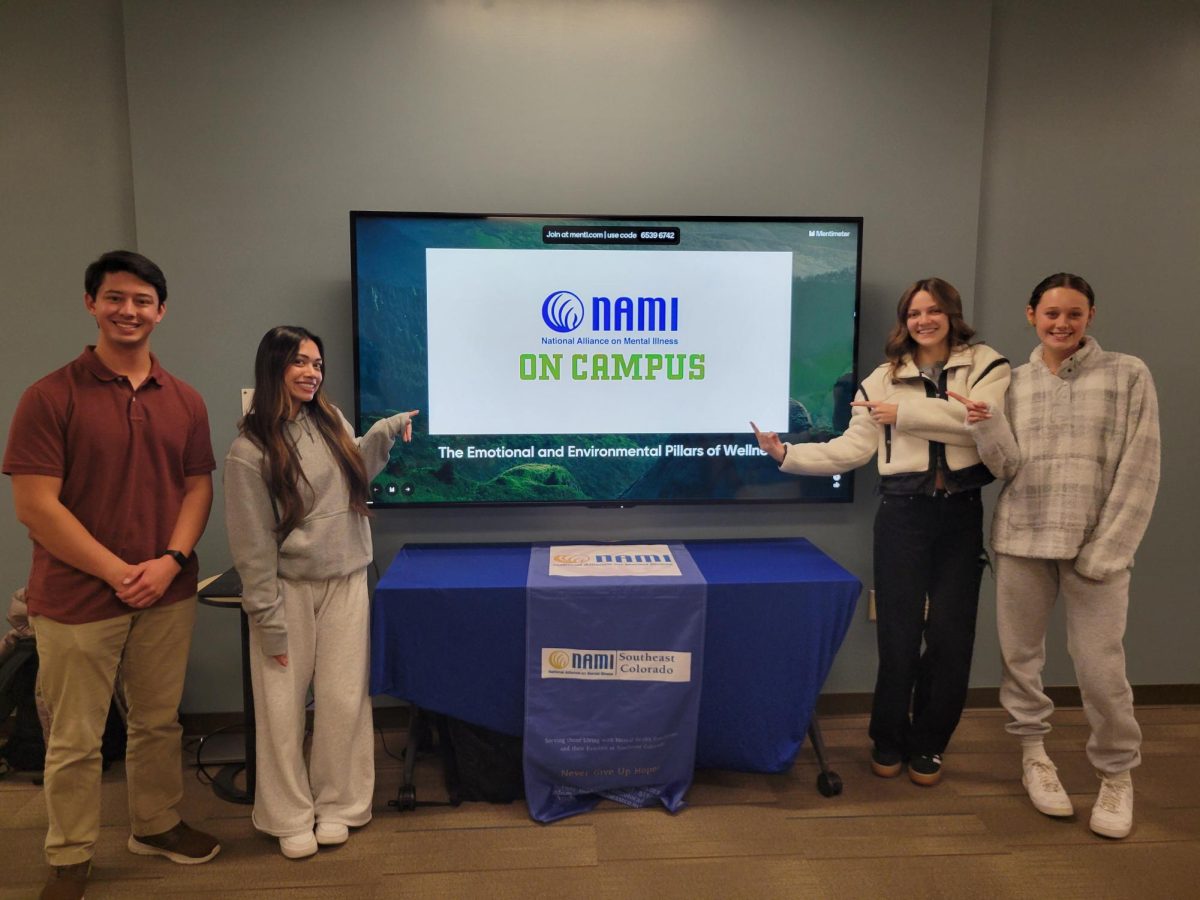The signs were hard to miss. Situated in the foyer of every building on campus, held to wire racks with clear strips of tape, the hollowed face of Mohandas Gandhi greeted students coming and going.
“Be the change you wish to see,” the signs read, reminding students of the importance of one voice, their own.
The 2008 Associated Students’ Government elections are approaching and the signs were part of a campaign launched by this year’s Election Commission, in an effort to draw student interest in running for a position as an ASG representative.
“We put up lots of fliers around and different ones at that. Some were a little humorous, some to the point and specific. Every door in the dorms got a flier, every apartment at the Walking Stick had a flier on it, we sent out mass e-mails four days in a row, just to let people know they could come and have the chance to run for a position,” Election Commission Chair Samantha Milyard said.
The Election Commission is comprised of five members, including the chair. The acting ASG President nominates a student to fill the position of chair. The nominee must then appear before the Senate and be confirmed by a 2/3 majority vote.
Once the chair is confirmed, they must nominate four students to serve as commissioners. The nominees must be submitted to the president and then must also appear before the senate and be confirmed by a 2/3 majority vote.
“The reason I found the four people I found was because they have different schedules, they are involved in different things, they live in different places on (and off) campus, I didn’t know some of them really well,” Milyard said.
She chose students Rebecca Packard, Spencer Rybacki, Shauna Walker and Chris Weidner to serve as the commission. They are all paid a one time stipend for their services at the conclusion of the election. The chairperson receives $300 and each commissioner $100, as outlined in Article II, Section 20 of the Election Code.
The job of the commission is to solicit student participation in the ASG elections, whether they are running for a post, or simply getting to a polling place on Election Day and casting a ballot. They are also charged with the responsibility of ensuring that the elections are accurate and fair, she said.
One way to monitor fairness is to make sure that the publishing and posting of advertising by the candidates follows the guidelines set forth by the Election Code, which follows the constitution and by-laws of ASG, she said.
“Just to have a smooth election obviously is the main objective,” Milyard said.
The commission must also publish advertising for the elections, with detailed information on how to run. This year the commission has been recording advertisements for broadcast on REV-89 and making fliers, banners and other types of signs. The money for advertisements comes from the ASG general budget and throughout the election process they must remain unaffiliated with the candidates, according to the Election Code.
“The theme I wanted to go with this year is more about motivation, having a serious note about the running part and maybe some more humorous type things about voting. Obviously the people who wanted to run probably have or they can be write-in candidates,” Milyard said, continuing, “Those who are voting, maybe they don’t care about that part of school as much, but we still want them to be there showing their voice.”
Any student is eligible to run as a write-in candidate on the ballot. The deadline for submissions of the required letter of intent to run is 4 p.m. March 17, the day before elections. The downside of running as a write-in is that the candidate’s name does not appear on the ballot, instead the voter must type in the name of the person onto their individual ballot.
“They can advertise just like everyone else, it’s just that people have to know them or they have to get their faces out there somehow so people remember,” Milyard said.
This year the commission broke away from the past by sending out actual letters to all of the professors on campus, asking them to nominate students for ASG.
“We felt the letter was more of a personal touch than the e-mail and it wouldn’t be disregarded as easily,” Milyard said. Some of the students nominated did show up and express interest in running, Milyard said that she thought the response from the faculty was larger this year than years past.
The deadline for potential candidates to turn in completed paperwork, including petitions was Feb. 28. The commission then had to verify the signatures on the petitions as well as verify the status of each potential candidate, Milyard said. The names of the candidates have now been posted in each building, and as of March 4 they were able to start publicly campaigning.
“We’ve broken it up into two game plans. The first one was get people to run, that way when it’s time to get people to vote there is more incentive because there’s a competition, there’s something to look at, something to feel one way or the other about,” Milyard said.
The Election Code lays out strict guidelines concerning the candidates advertising capabilities. Violation of the rules is grounds for disqualification. Currently, the Election Protest Period is in place. During this time, which runs until the 14th week of classes, any student may file a protest of infraction of the rules, within 24 hours of the occurrence, which goes directly to Milyard.
“It was all about the motivation and inspiration in the beginning and now we are hoping that those who became candidates will take that and push people to vote,” Milyard said.
The candidates whose names will appear on the ballot are as follows:
President and Vice President for Finance and Administration: David Fresquez and Allan Chacon, Amanda Cristelli and Nathan Pesch, Victoria Watson and Angelina Perez
Vice President for Legislative Affairs: Steven Titus, Leighann Hardwick
Senator At-Large (also serves as Pro Tem): Jenna Rossow
Senator representing the College of Education, Engineering, and Professional Studies (two vacancies): Larisa Bryson, Dain Schmidt
Senator representing the College of Humanities and Social Sciences (two vacancies): Julio Martinez, Gabriela Barcenas
Senator representing the Hasan School of Business (two vancancies): Sarah Bennett
Senator of Housing: Meenambika Gowrishankar
Senator of Student Empowerment: Shawn Jones, Shahil Karki
Senator of Greek Life: Justin Menu
Senator of Clubs and Organizations Funding Policies and Procedures: Nathan Duncan
The Senator positions that will appear vacant on the ballot are student activities, recreational affairs, the College of Science and Mathematics (two positions) and the second seat for the Hasan School of Business.
The Senate is comprised of 15 members when full







